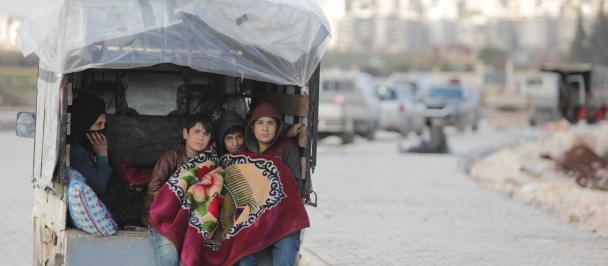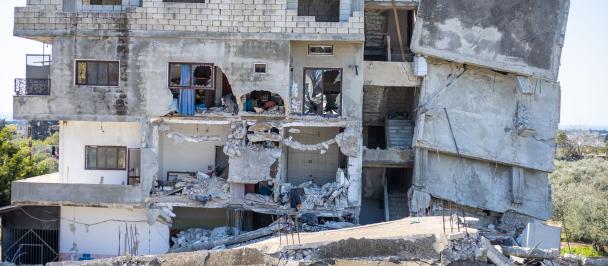I have just returned from five days in Yemen, where I traveled to Aden, Sana’a, and Hodeidah, to meet with communities, officials, and members of the UN family.
Four years of violent conflict in Yemen has reversed decades of development progress. Fighting has killed or injured tens of thousands of civilians and displaced well over 3 million people. Eighty per cent of the population is in need of humanitarian assistance, with over 10 million on the brink of famine.
The magnitude of the devastation and human suffering that I learned about and witnessed firsthand is difficult to comprehend. War has brought the country’s economy to a halt. Infrastructure and agriculture have been decimated. The national income has been cut in half. Over a third of businesses have shuttered. 60 percent of Yemenis are without jobs. Nearly five million children do not have access to education.
Yemen is now considered to be the largest humanitarian crisis in the world.
A recent study commissioned by UNDP has confirmed that progress on socio-economic indicators has been set back by over 20 years.
Far from building on previous achievements, development in Yemen is currently in descent.
My message is therefore clear, the only viable solution for Yemen is peace.
One of the main objectives behind my visit to Yemen was to explore how development initiatives- alongside humanitarian support- can lead to peace and to discuss how the UN Development Programme, together with its partners and the international community, can work with all Yemenis to lay the foundation for a future with viable alternatives to war and chaos.
In the midst of the crisis, I saw the possibilities for a different future for Yemen.
In Aden, I discussed options for rebuilding vital government and economic institutions, with senior leaders in Government and the Central Bank, and explored how UNDP can provide technical expertise to stabilize the economy.
In each city, I met and heard from Yemeni people affected by the conflict and ensuing economic collapse. They want peace, relief, and their dignity restored. I witnessed firsthand the determination and resilience of Yeminis in turning challenges into opportunities.
Through groundbreaking initiatives with donors such as the European Union and the Government of Japan, and partners such as Yemen’s Social Development Fund, I met inspiring individuals from rural areas who look to us for income generating opportunities.
Individuals like Ahmed, who despite being wheelchair-bound, has not lost his optimism and determination for a better future for himself and his family and has undergone vocational training to set up a shop to repair mobile phones. And Nihayah, a recently divorced mother to a young son, who previously worked as a day labourer in farms and was unable to meet her basic needs. Nihayah has benefitted from training and start-up funding which have allowed her to establish a clothing shop in her home. Her life has improved, and her son is now able to go to school. Ahmed and Nihayah can now meet their basic needs as well as save for the future, as have hundreds of others who benefitted from the training and start-up funding package.
There is also the school in the Old City of Sana’a with their heroic headmistress and staff, which UNDP in partnership with Yemen’s Public Works Project has rehabilitated. Providing education to over three thousand girls, it is dismaying that the children and their teachers - who haven’t been paid for months - have become accustomed to the sounds of gunfire and explosions. This is one of hundreds of projects which a pioneering programme of UNDP and the World Bank is currently supporting across Yemen.
In Aden, I also visited 3500-year-old water tanks built in the mountains surrounding the city, which connect a system of canals and drains once considered to be the lifeline of the city. Due to the disruption of the waste and sewage management systems in the city, this very lifeline has now become a serious risk to the health of its residents. Skilled Yemeni engineers, with support from a UNDP programme funded by the Government of Japan, are working with communities to repair the dilapidated tanks and rehabilitate the channel to prevent cholera and other communicable diseases.
These pioneering partnerships in Yemen add a longer-term perspective of development to the current crisis response, as past conflicts have shown us that “relief now and development later” is not a model that can safeguard peace and promote prosperity once the conflict has ended.
Through the generosity of donors who have been keen to ensure the application of development perspectives in crisis response, the Yemeni people have had tangible improvements in their everyday lives. Thanks to a pledge of $400 million from the International Development Association of the World Bank, UNDP has been able to support the access of people to jobs, education, healthcare and functioning markets in 300 districts across Yemen’s 22 governorate.
In Hodeidah, where the United Nations is working with the parties and the Special Envoy of the Secretary-General to implement the Stockholm peace agreement, I visited the port- a symbol of hope for a better future for Yemen. Badly affected by the fighting and in desperate need of repairs, the port is the main lifeline for humanitarian and commercial imports into Yemen. As such, the port’s management and rehabilitation are at the core of the early implementation of the Stockholm agreement. Importing goods and the resumption of trade would allow Yemen to begin its economic recovery. UNDP is committed to supporting the much-needed repairs, to give an impetus to peace and lay the foundation for future development.
The Yemeni and international community are closely observing the progress, or lack thereof, that we will all make. Increased engagement is therefore needed on the political front to create the necessary conditions for such investments.
I have discussed this with the parties in Aden, Sanaa and Hodeidah and was encouraged by their continued commitment to make progress, with the support of the good offices of the Special Envoy of the Secretary-General and the United Nations Mission in Hodeidah (UNMHA).
As a development practitioner, I have seen the impact that restoring pride, dignity and functioning services make towards lasting reconstruction and peace.
As a champion for stronger linkages between relief and development, I call on the international community to stay on course, turn pledges into contributions and continue their support of Yemen and its people at this vital time in its history.
It is critical that our humanitarian colleagues in OCHA, WFP, UNICEF and the extended UN family as well as international NGOs, continue to deliver lifesaving assistance to the most vulnerable, under extremely challenging conditions.
I also call on our counterparts in Yemen to continue to create an environment that will provide us with access and enable us to implement and scale-up operations.
Finally, I would like to pay tribute to the countless Yemeni citizens and our colleagues in the United Nations and international NGOs who are engaged in humanitarian and development efforts and who I met during my visit. Their extraordinary commitment and support under extremely challenging circumstances deserves our admiration and respect.
We cannot wait for a brighter future for Yemen.
The time has come for us to put our hopes into concrete actions.
Know more about UNDP Administrator Achim Steiner Official Mission to Yemen

 Locations
Locations



